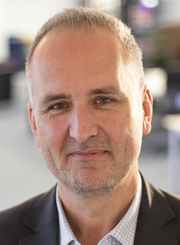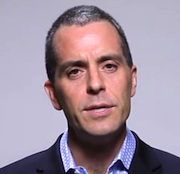Tech Data Europe is creating a complete Microsoft cloud ecosystem that will enable partners to deliver the Microsoft's entire software stack, along with complementary solutions, through a single, integrated management platform.
All of Microsoft's cloud-based solutions, including Microsoft Office 365, Microsoft Azure and Microsoft Enterprise Mobility + Security (EMS), are available through the Tech Data Cloud Solution Store, powered by the company's StreamOne platform, as part of the Microsoft Cloud Solutions Provider (CSP) program.
This means resellers, VARs and MSPs can offer the full range of Microsoft solutions alongside complementary offerings through a single portal, and also make use of the monitoring and billing capabilities of Tech Data's platform to manage their customer accounts.
"Microsoft solutions are widely used in most end user organisations and many customers now want to use those applications in the cloud, so it's important that resellers can support the entire stack," said Reza Honarmand, vice president, Cloud, Europe at Tech Data.
"In addition, customers need efficient ways to manage and integrate applications and ensure their data is properly backed-up, safe and secure. Through our Cloud Solution Store, Tech Data is providing not only the complete Microsoft suite under the CSP program, but also a whole range of complementary solutions and services that will enable VARs and MSPs to add value to the services they offer and enhance their long-term business prospects."

 The appointment of Kevin Matthews (pictured) by Exertis to the newly created role of Enterprise Sales Director signifies the distributor's growing interest and investment in bigger business. He reports to Sales and Commercial Director UK&I Phil Brown.
The appointment of Kevin Matthews (pictured) by Exertis to the newly created role of Enterprise Sales Director signifies the distributor's growing interest and investment in bigger business. He reports to Sales and Commercial Director UK&I Phil Brown. ShoreTel's global expansion campaign is accelerating with the UK launch of ShoreTel Connect CLOUD and ShoreTel Connect Contact Center for CLOUD solutions. The UK data centre is production ready and the launch follows the introduction of cloud-based solutions as a partner managed service in the UK in 2015.
ShoreTel's global expansion campaign is accelerating with the UK launch of ShoreTel Connect CLOUD and ShoreTel Connect Contact Center for CLOUD solutions. The UK data centre is production ready and the launch follows the introduction of cloud-based solutions as a partner managed service in the UK in 2015.